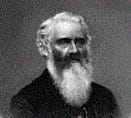No Small Novels
MichLit: Born Strangers: A Chronicle of Two Families by Helen Topping Miller
When assessing a novel’s value, size seems to matter inordinately to book reviewers. The label “small novel” has been applied disproportionately to regional novels and to novels written by women, which often focus on domestic issues, relationships, and nature.
The 1949 New York Times review of Born Strangers (1) called the book “moderately-sized.” So not “small,” but definitely not “big” either.
Helen Topping Miller’s novel proves, however, that there are “no small novels, just small reviewers” (apologies to Stanislavski). A departure from the historical romances she had written previously, this overlooked regional novel is deftly written and deserves a second look. Miller delivers depth and complexity to both characters and events drawn from the author’s own family history in early Michigan.
Helen Topping was born near Fenton in 1884. Her maternal and paternal grandparents, the Wixoms and the Riggs, were what used to be called pioneer stock, colonizers from New York state who developed business interests in the Oakland/Livingston/Genesee County region of lower Michigan. Born Strangers follows the two families as their fortunes intertwine with each other and with historical events like the 1849 Gold Rush and the Civil War.
The families were unusual in their support of women’s education and in their respect for Indigenous peoples. Prior to the Civil War, the Riggs and Wixom daughters, as well as their sons, received the equivalent of a private high school education. The character of Dr. Isaac Wixom, patterned on Miller’s paternal great-grandfather, expresses a disgust for Andrew Jackson that was extremely progressive both for his era and the era the novel was published (1949). Wixom describes Jackson as:
“‘…a man who had so little humanity that he uprooted thousands of helpless Indians from the lands that were theirs by God-given right…Yes sir, by God-given right! Drove them like cattle hundreds of miles till they dropped and died like flies. Don’t talk to me about Andrew Jackson…that scurrilous, obnoxious, scoundrelly rascal who was elected to high office and kept there by an unwashed untaught rabble.’” (2)
Born Strangers gets several things wrong, of course—twice the author seems to imply that “Chippewa” and “Ojibway” are two distinct peoples(3)—but in the main, the book attempts to portray fairly the inequitable and inexorable march of European encroachment into indigenous Michigan. Miller’s characters are, if not proactive, at least observant. The author’s maternal grandfather, the craftsman Gordon Chipman, asks:
“Wouldn’t you have liked to see this country before any man came into it? Men make such a stinking mess wherever they go, and they carry so many abominations along with them.” (4)
It’s interesting that both the venerable Michigan in the Novel: 1816-1996 (5) and Michigan in Literature (6) get basic details about this novel wrong. Beasecker gives “1820s to the 1840s” as the novel’s timeline, and Andrews, “1829 to 1949”; the actual timeline is the mid-1830s to the late 1860s, from pre-statehood to post Civil War. Andrews goes on to say the novel has “no story line” and that it is “simply a sequence of events as the years pass” (7). This echoes the NYT reviewer who described the framework as “loosely constructed…stories that grandfathers tell to entertain the children.”
While Born Strangers isn’t a textbook on post-invasion history, it is a fully framed and compelling novel with a refreshing honesty that is far more than “moderately sized.”
Notes
1. New York Times, Oct. 2, 1949, 55-56.
2. Helen Topping Miller, Born Strangers: A Chronicle of Two Families (Indianapolis, IN; The Bobbs-Merrill Company, 1949).
3. Miller, “This Ojibway was not at all like the Chippewa, Wabonais” (88); “‘Wabonais Chippewa. Chippewa no good.’ The Ojibway tilted the jug again” (92).
4. Miller, 227.
5. Robert Beasecker, Michigan in the Novel: 1816-1996 An Annotated Bibliography (Detroit, Wayne State University Press, 1998).
6. Clarence A. Andrews, Michigan in Literature (Detroit, Wayne State University Press, 1992).
7. Andrews, 53-54.




